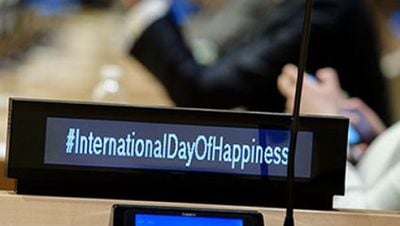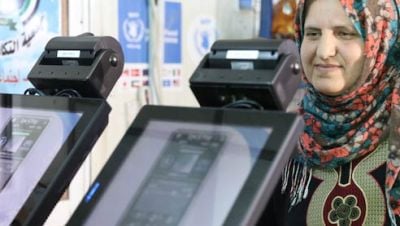‘Vulnerability’ and ‘resilience’ are among the new catch-words of the international community. These vulnerabilities range from the vulnerability of supply chains to the vulnerability of communities and people; and the proposed policy responses – aimed at strengthening resilience – range, accordingly, from the protection of maritime transport to installing early warning systems, putting houses on stilts and offering people affordable insurance.
These measures are important and urgently required, because statistics suggest that the number of risks we are confronting is rising; and so are the costs of the crises and disasters, natural and human-made, that we have to bear.
In fact, the list of global challenges is getting longer and longer, including, among others, global warming, loss of biodiversity, the rising spectre of water scarcity, new health threats, rising inequity and persisting poverty, excessive financial volatility, illicit trade, cyber insecurity and other forms of cross-border crime and violence.
If we consider these challenges as directly contributing to the mounting problems of vulnerability, then a further question poses itself: Is it just by chance that all these challenges are occurring together? Or, do they have a common root cause?
Tracing the macro-risk of vulnerability: the sovereignty paradox
In a recent paper I examine this question; and the main finding is that the latter appears to be the case: Today’s multiplying risks and vulnerabilities can be traced back to a common root cause: the sovereignty paradox.
The sovereignty paradox arises because in almost all areas of policy states tend to hold on to a strict, conventional notion of sovereignty. Fear that international cooperation could jeopardise their policymaking sovereignty, leads states to shy away from effective and fair international cooperation. However, global challenges often require just that, viz. a multilateral collective solution. But as this type of cooperation is in short supply problems remain unresolved and are allowed to assume crisis proportions. In the end policymakers achieve the opposite of what they wanted: Rather than securing their policymaking sovereignty they are losing it, bit-by-bit, with each further crisis.
Of course, states’ concerns about a loss in policymaking sovereignty is, in many instances, justified, as power politics and ‘zero sum’-oriented strategies of international cooperation are still quite common, despite the rising trend towards multi-polarity and growing demands for more global fairness. Moreover, solving many global challenges means creating a global public good (GPG); and GPGs, like any other type of public good, are subject to free-riding. Importantly, in this case, free-riding is not limited to market actors but occurs also by states. The reason is that, when appearing internationally, states are also individual actors; and as such, they, too, may feel tempted to free-ride on contributing to a global public good like climate change mitigation. So, sovereignty concerns and lacking motivation to cooperate are often intertwined.
Yet, whatever the reason or combination of reasons for its existence, the sovereignty paradox is at the root of the crisis-proneness of today’s world.
So, how can we escape this policy trap?
Escaping from the policy trap of the sovereignty paradox
In order to move the world on to a path of more sustainable global growth and development, two reforms deserve priority:
- Devising a sovereignty-compatible approach to international cooperation: This will first require compelling proof that for global-issues marked by policy interdependence among countries, fair and effective international cooperation is in states’ self-interest. Second, we must forge consensus on a notion of ‘smart’ and mutually respectful sovereignty, i.e. an exercise of sovereignty that combines the pursuit of national interest with respect for the sovereignty of other states, including respect for the fact that others may want to derive a net-benefit from international cooperation.
- Establishing an independent high-level global stewardship council: This body would assist state and nonstate actors to be more aware of the global public domain, i.e. the ensemble of GPGs, including human and natural global commons, and are that is presently mostly overlooked and unmanaged. Therefore, the Council should not be just another intergovernmental, statist body. Rather, it should be a multi-actor body, concerned about combining the interests of states, however diverse, with the systemic requirements of GPGs, including those of the natural and human-made commons and those of the Earth as a whole. True, states are, today, often only one group of actors. Nevertheless, they have legislative powers; and, therefore, it would be useful to create such a Global Stewardship Council within the UN.
Promoting more sustainable global growth and development is, therefore, possible. Maybe, the Post-2015 Agenda process or the proposed subsequent Monterrey Plus conference in mid-2016 affords an opportunity to reach international agreement on the type of reforms suggested here.
Without undertaking such reforms, we might see a further rise in risks and vulnerability-generating crises and catastrophes. Resilience measures put in place to cope with the resultant disruptions would be merely palliative and not bring us on to a path of sustainability. We clearly need two sets of measures. measures that allow us better to cope with the ill-effects of the current global-governance reform back-log and measures that go to the root of the present problems and tackle the underlying macro-risk: the sovereignty paradox.
In other words, enhanced sustainability requires that we recognize that we have already stepped out of the classical world order of the Westphalian state and into ‘Westphalia 2.0’. This new world order must recognize that in interdependent policy fields– of which there are more and more – the smartest way of meeting national interests is fair international cooperation.
The author is adjunct professor, Hertie School of Governance, Berlin, and former director of UNDP’s Office of Development Studies, New York. Comments are welcome and can be addressed to [email protected]/ .
This note draws on:
Kaul, I. 2014. Fostering Sustainable Human Development: Managing the Macro-risks of Vulnerability. New York: UNDP Human Development Report Office. Occasional Paper.
_____. 2013. “Meeting Global Challenges; Assessing Governance Readiness”. In The Governance Report 2013, ed. Hertie School of Governance. Oxford,UK: Oxford University Press.
Photo by Mangus Manske, Wikimedia Commons
The HDialogue blog is a platform for debate and discussion. Posts reflect the views of respective authors in their individual capacities and not the views of UNDP/HDRO.


